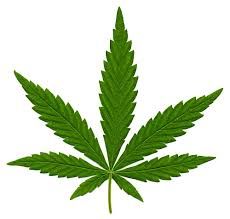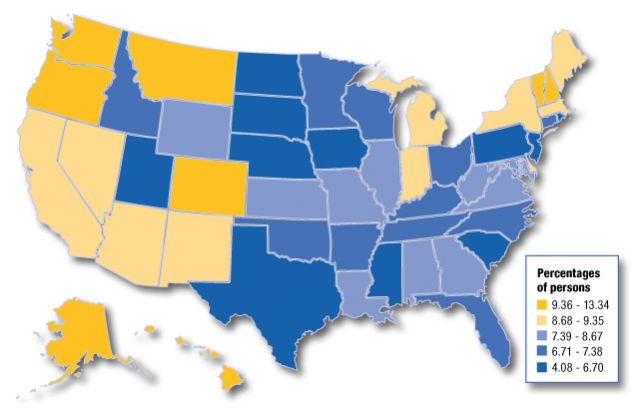Health
Just Say No 2.0
Heavy marijuana use is a health issue, not a moral issue.
Posted March 11, 2014

Heavy marijuana use alters adolescent brain structure and impairs brain function for people of all ages. On March 10, Colorado launched it’s Drive High, Get a DUI campaign. Colorado was the first state to legalize recreational marijuana use and is the first state to roll out public service announcements warning marijuana users about driving when you're high.
The latest marijuana statistics are noteworthy. Marijuana consumption has increased over 30 percent since 2006. From 2006 through 2012, about half of drivers involved in fatal car accidents were tested for drugs and about 11 percent of those drivers tested positive for marijuana. In a September 2014 Colorado survey, 21 percent of respondents reported consuming marijuana and then driving at some point in the past month.
The Colorado Department of Transportation is now airing three television ads as part of its Drive High, Get a DUI campaign. The public service announcements target men ages 21-34, the demographic that tends to have the highest number of DUIs.
In another PSA, a man finishes installing a new flat screen TV on the wall, gives his partner a high five, and a moment later the TV falls off the wall and shatters on the floor. "Installing your TV while high is now legal," reads the text in the ad ... "Driving to get a new one isn't." The campaign also includes tourist outreach to rental car companies and dispensaries about marijuana driving laws in Colorado.
One Trillion Dollars of Illegal Drugs
A March 2014 study on national drug use found the amount of marijuana consumed by Americans increased by more than 30 percent from 2006 to 2010. The report was compiled for the White House Office of National Drug Control Policy and was conducted by researchers affiliated with the RAND Drug Policy Research Center.
"Having credible estimates of the number of heavy drug users and how much they spend is critical for evaluating policies, making decisions about treatment funding and understanding the drug revenues going to criminal organizations," said Beau Kilmer, the study's lead author and co-director of the RAND Drug Policy Research Center. "This work synthesizes information from many sources to present the best estimates to date for illicit drug consumption and spending in the United States."

The researchers say that because the study only includes data through 2010 the report doesn’t address the recent reported spike in heroin use or the consequences of marijuana legalization in Colorado and Washington. The report also does not try to explain the causes behind changes in drug use or evaluate the effectiveness of drug control strategies.
Researchers say that drug users in the United States spent around $100 billion annually on cocaine, heroin, marijuana and methamphetamine throughout the decade. While the amount remained stable from 2000 to 2010, the spending shifted. While much more was spent on cocaine than on marijuana in 2000, the opposite was true by 2010.
"Our analysis shows that Americans likely spent more than one trillion dollars on cocaine, heroin, marijuana and methamphetamine between 2000 and 2010," Kilmer said. The surge in marijuana use is related to an increase in the number of people who reported using the drug on a daily or near-daily basis.
Legalization May Increase Teenage Marijuana Use
Public support for marijuana legalization is increasing across the United States. Recreational use of cannabis was recently legalized in Colorado and Washington state and other states across the country are expected to follow suit. Currently an additional 15 states have decriminalized marijuana use, and 19 states along with the District of Columbia allow prescription medical marijuana use.
Legalizing pot has its pros and cons. If you’d like to read more on the politics and economics of legalizing marijuana, this recent New York Times article is very informative.
On the downside of legalization, a February 2014 study found that 10 percent of non-lifetime marijuana users surveyed reported that they would try marijuana if legal. The study found that a large percentage of high school students normally at low risk for marijuana use (e.g., non-cigarette-smokers, religious students, those with friends who disapprove of use) reported intention to use marijuana if it were legal.

Percentage of people 12 or older who said they used illicit drugs in past year. (Study from 2008)
"Our study focused on intention to use and it was the first to find that groups generally not "at risk" become more "at risk" when legalized," said Joseph J. Palamar, PhD, MPH, Assistant Professor at the Department of Population Health, NYU Langone Medical Center.
"What I personally find interesting is the reasonably high percentage of students who are very religious, non-cigarette smokers, non-drinkers, and those who have friends who disapprove of marijuana use—who said they intended to try marijuana if it was legal," said Dr. Palamar. "This suggests that many people may be solely avoiding use because it is illegal, not because it is "bad" for you, or "wrong" to use."
Conclusion: Marijuana Use Is a Health Issue, Not a Moral Issue
Heavy marijuana use alters adolescent brain structure and impairs memory function. Also, if you smoke marijuana to reduce anxiety, recent studies have found that over time cannabis hijacks receptors of the cannabinoid system and reduces your brain's ability to create its own cannabis called "endocannabinoids." The lack of self-produced cannabis can create more anxiety and the need to smoke more marijuana to de-stress… This cycle can lead to dependency and snowball into addiction.
The researchers caution that as marijuana use increases—regardless of legal status—it will become increasingly important to prevent adverse consequences that may be associated with use. Public health practitioners should step up their efforts to educate cannabis users about the potential harms associated with marijuana use. Likewise, the researchers emphasize the need to address drug use through more of a public health paradigm and treat marijuana use as a health issue and less of a moral issue.
If you’d like to read more on this topic, check out my Psychology Today blog posts:
- “Heavy Marijuana Use Alters Teenage Brain Structure”
- “Cannabis Targets Receptors in the Amygdala Linked to Anxiety”
- “Does Long-Term Cannabis Use Stifle Motivation?”
Follow me on Twitter @ckbergland for updates on The Athlete’s Way blog posts.




